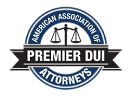It is a simple reality that parents need the freedom and authority to discipline their children. California law recognizes this, but places limitations on the extent of discipline permissible. The line California law draws is a limit to physical discipline, and an absolute bar on punishment which is cruel and unusual. California Penal Code §273(d) defines the crime of child abuse by prohibiting any conduct which could harm a child physically.
EXAMPLES:
- Leaving a mark on a child’s arm from holding it.
- Hitting a child with an object severely enough that it leaves bruises.
- Hitting a child’s rear end with an object to discipline
To find someone guilty of child abuse, the Prosecution must prove three (3) elements beyond a reasonable doubt:
- You willfully caused a child to experience cruel and unusual punishment.
- The result of your willful conduct caused a traumatic physical condition in the child
- When you performed the willful conduct, you were not reasonably disciplining the child.1
What Does Willfully Mean When Charged With Child Abuse?
One of the three elements that Prosecution needs to prove beyond a reasonable doubt to maintain a charge of child abuse against you is that you acted willfully. This means you acted willfully, as opposed to involuntarily. Regardless of your intentions, the fact that your act resulted in the harm to the child is sufficient to satisfy this element. It is no defense to say you didn’t mean to hurt the child. The Courts scale this definition back a little to limit the willfulness to actions, which by their very nature, will probably result in a direct injury to a child.
Additionally, the act must be one which you knew, or should have known, would result in the application of physical force against the child. The “should have known” aspect above is dependent on a reasonable persons knowledge, as well as your personal knowledge of the situation. Thus, you can still be held accountable under the willfulness prong if other, ordinary, people would have realized the act would lead to physical harm to the child. 2
EXAMPLE:
David has had a long day, and just wants to watch the game. Unfortunately, David’s son Victor has other plans in mind. Eventually David becomes agitated with Victor, and grabs Victor’s arm, twisting it in the process. David has acted willfully grabbed Victor by the arm, which David knew, or should have known, could result in physical harm to Victor. David could be found guilty of child abuse in this scenario.
What Does “Cruel And Unusual Punishment” Mean In A Child Abuse Case?
After the Prosecution has proven that you acted willfully beyond a reasonable doubt, the Prosecution must face a second hurdle. The Prosecution must next prove that your conduct was designed to inflict harm in a cruel manner without pity, tenderness, or kindness. California has specifically identified punching, shaking a child, hitting, slapping, kicking, throwing objects at a child, choking, or even burning a child meets the definition above. This list is not exhaustive. It should be noted that you, as a parent in California, have a right to discipline your child, including spanking. This true, as long as your conduct isn’t unreasonable, unnecessary, or excessive. This means that if your conduct was for the purpose of discipline, and not excessive, you have a viable defense to a charge of child abuse. A competent attorney will advocate the facts in support of your defense. Our attorneys at Orange County Criminal Attorney have ample experience defending clients in a wide range of criminal charges, including child abuse. Since the defense that your conduct was for discipline, and was not unreasonable or excessive requires a judgment call, it is imperative that you have the most persuasive attorney available. An OCCA attorney has been trained extensively to advocate forcefully and persuasively to the jury. A competent attorney may be the difference between an acquittal and a guilty verdict.
What Does A “Traumatic Physical Condition” Mean In A Child Abuse Case?
A traumatic condition is defined as a wound, serious bodily injury, or even a minor injury caused by the physical force you used. California Courts seem to construe this element rather strictly, including even minor injuries such as scratches and bruises in the definition. To be convicted of child abuse, it is critical that the traumatic physical condition was caused by the act, and the injury. That is your act had to have caused the injury, and injury must have caused the traumatic physical condition.
What Is A Child For Purposes Of A Child Abuse Case?
According to every state, a “child” is defined as a person who has not reached the age of majority, 18. This means that a person ceases to be a child at 12:01am, the day of their 18th birthday.
EXAMPLE:
Vickie is 17 years old, the day before her 18th birthday, she goes to celeberate her birthday a little early. At the party, Vickie got drunk and returned home at 11:30pm. Her father, Dennis, was furious and slapped Vickie in the face. Dennis is guilty of child abuse, because Vickie is still a child in the eyes of the law, even if she were going to be an adult in 30 minutes.
What Are The Penalties For Child Abuse?
While California allows parents the autonomy, and discretion, to discipline their children. The law however imposes certain limitations on a parents autonomy. A conviction for child abuse cannot occur until the prosecution proves that a parent’s actions were over the limits of disciplining a child. There is a legal distinction between discipline, and causing physical harm to a child. The line is drawn where discipline becomes child abuse.
Like many crimes, child abuse is considered a “wobbler offense.” This means the Prosecution can charge the offense as either a misdemeanor, or a felony, depending on the circumstances surrounding the event. If you are charged with misdemeanor child abuse, you can face up to one (1) year in county jail, misdemeanor probation, a fine not exceeding $6,000 or a combination of the three. If you are charged with felony child abuse, you could face jail time ranging between two (2) and four (4) years, probation, a fine up to $6,000, or a combination. It is essential to have an attorney at this point, as competent counsel can convince the Prosecution that your case should not be charged at all, or if it is charged, charged as a lower offense. The attorneys at Orange County Criminal Attorney have ample experience in these types of matters, and can effectively advocate for the best outcome.
The Three Strikes Law And Child Abuse
California has a rule known as the “three strikes law.” Under this rule, if a Defendant is convicted of a violent felony, they receive a “strike.” If the Defendant is subsequently convicted of a second violent felony, the judge has the discretion to sentence the Defendant up to twice the original prison time. If a Defendant receives a conviction for a third violent felony, they could face up to 25 years in state prison.
What Legal Defenses Could My OCCA Attorney Pursue If I Am Charged With Child Abuse?
As stated above, child abuse is considered a “wobbler offense” in California. This means that you may be charged with a misdemeanor, or a felony, depending on the facts surrounding the incident. Regardless, a conviction for child abuse will appear on your criminal record. This can impact sentencing and charges in subsequent cases. A conviction on your record could result in not getting a job because the employer conducted a background check. Further, a conviction for child abuse will cause you to be on the “Domestic Violence Register”, which is accessible by many people. If you have been charged with child abuse, contact an attorney from Orange County Criminal Attorney immediately. It is essential that your OCCA attorney be involved at the earliest possible moment to protect your rights, advocate for a lesser, or no, charge, and ultimately secure your freedom.
THE ATTORNEYS AT OCCA COULD PURSUE A NUMBER OF DEFENSES TO A CHILD ABUSE CHARGE AGANST YOU. SOME OF THESE DEFENSES INCLUDE:
- Wrongfully accused.
Unfortunately, in cases like this, California errs on the side of caution when accusations of child abuse are made. This makes frighteningly easy to be subjected to a false accusation. This can be caused by any number of things including jealousy, revenge, or hate. OCCA attorneys have represented the falsely accused before, and take pride in clearing our client’s names.
- Your conduct isn’t what caused the traumatic condition
There are certain things parents do that might be considered abusive to their child, but the requirement is that the child suffer a traumatic condition. It is further required that the traumatic condition be caused by your wrongful conduct. Thus, even you engaged in wrongful conduct, and your child suffered a traumatic consequence, the Prosecution will still have to prove causal link between your conduct and the traumatic condition of your child. For example, if you grab your child by the arm and the traumatic condition the Prosecution is pursuing is a broken leg, it would be a defense to point out that the child’s broken leg was caused by an accident on the playground, and not by your act of grabbing their arm.
- Right to discipline
As a parent, you have a right to discipline your child, and everyone understands that children can be difficult at times. This right to discipline is limited to discipline that is reasonable and necessary to your duty as a parent. If the Prosecution cannot prove that your discipline was excessive or unnecessary, you cannot be convicted of this crime.
- The injury was an accident





















